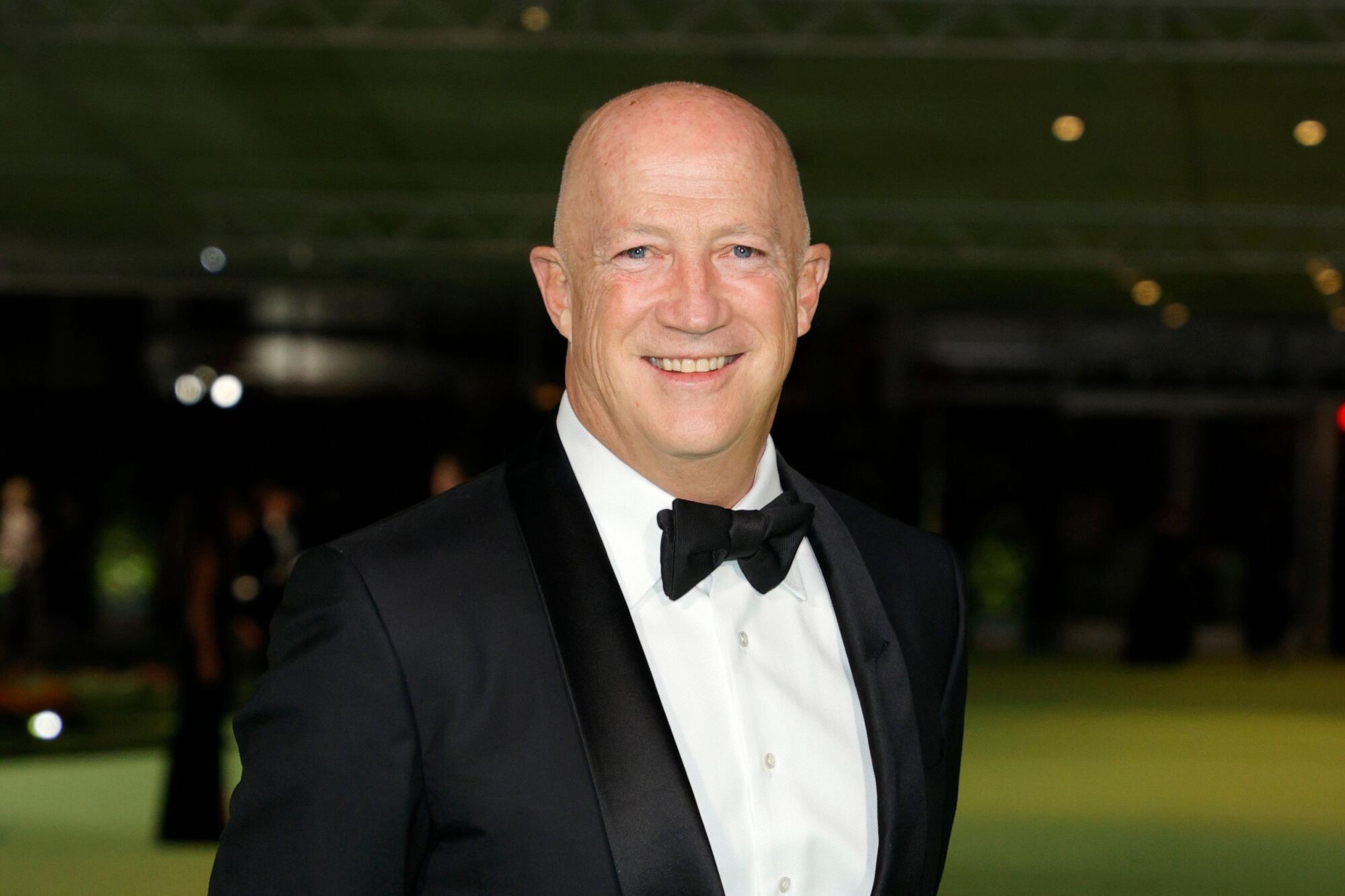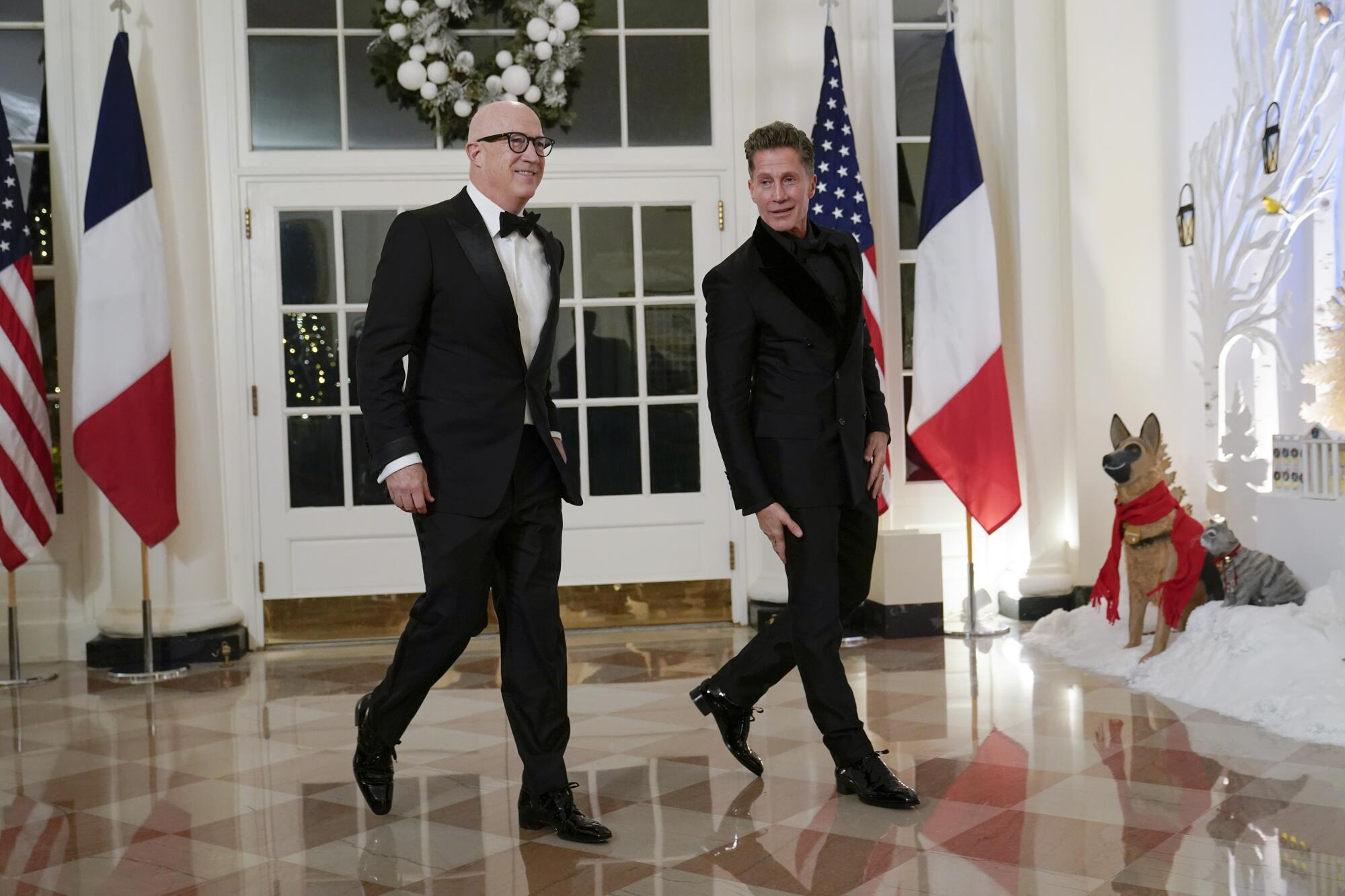
- Share via
The behind-the-scenes power of a Hollywood superagent such as Bryan Lourd manifests in different ways, depending on the day.
One minute, he’s putting the world’s most influential entertainment company, Walt Disney Co., on blast for, in his words, “shamelessly and falsely” criticizing Scarlett Johansson after she sued the company for the way it released her movie “Black Widow” online during the COVID-19 pandemic. The next, after the dust has settled, everyone’s friendly again and Lourd is praising Disney’s then-leader, Bob Chapek, in the press.
Discover the changemakers who are shaping every cultural corner of Los Angeles. L.A. Influential brings you the moguls, politicians, artists and others telling the story of a city constantly in flux.
But that’s the job when you’re leading Creative Artists Agency, a titan of talent representation with clients including Johansson, George Clooney, Octavia Spencer and Brad Pitt.
“He will defend his company and all of his clients like a lion,” said “Little Women” producer and former Sony Pictures Entertainment executive Amy Pascal. “He always goes to the mat for people and things he believes in. He’s ferocious and calm at the same time.”
Agents are at the center of film and TV commerce. They broker deals for writers, actors, directors, musical artists and sports stars, pushing to get the best rate. They also persuade risk-averse network executives to take a creative leap of faith — including championing a show about high school misfits who join a glee club. “People in this business listen to Bryan — Bryan’s opinion matters,” said “Glee” co-creator Ryan Murphy.

Lourd’s influence extends beyond entertainment. He was instrumental in the creation, with the Los Angeles Unified School District, of the Roybal School of Film and Television Production, which aims to diversify the pipeline of future Hollywood workers.
Lourd, 63, was promoted to chief executive officer of CAA in 2023, after the agency agreed to sell a majority stake to the billionaire Pinault family’s investment arm.
CAA and Lourd have also come in for sharp criticism, particularly after the #MeToo movement shined a light on how agents can enable bad behavior. The agency in 2017 issued a statement saying it apologized “to any person the agency let down for not meeting the high expectations we place on ourselves,” in response to a New York Times article detailing talent reps’ failures to respond to sexual misconduct allegations about film producer Harvey Weinstein.
Last year, actor Julia Ormond sued Weinstein and CAA in New York Supreme Court, saying that she informed her agents, Lourd and Kevin Huvane, about the Miramax co-founder’s abuse, but they did nothing to help her and instead cautioned her about speaking out. CAA has called the lawsuit’s claims baseless and sought to dismiss the complaint.
The controversy provided ammunition for Lourd’s biggest and most bitter rival, Endeavor Chief Executive Ari Emanuel. At an October Bloomberg business conference, Emanuel called for Lourd to take a leave of absence in light of Ormond’s lawsuit.
It wasn’t the first time Emanuel took aim at his competitor. Before that, Emanuel had told Freakonomics Radio that CAA had become Walmart. Lourd, who grew up in New Iberia, La., brushes off that kind of criticism. “Walmart turned out to be a pretty important part of our country and if we play that role in the creative community — all for it,” Lourd said.





